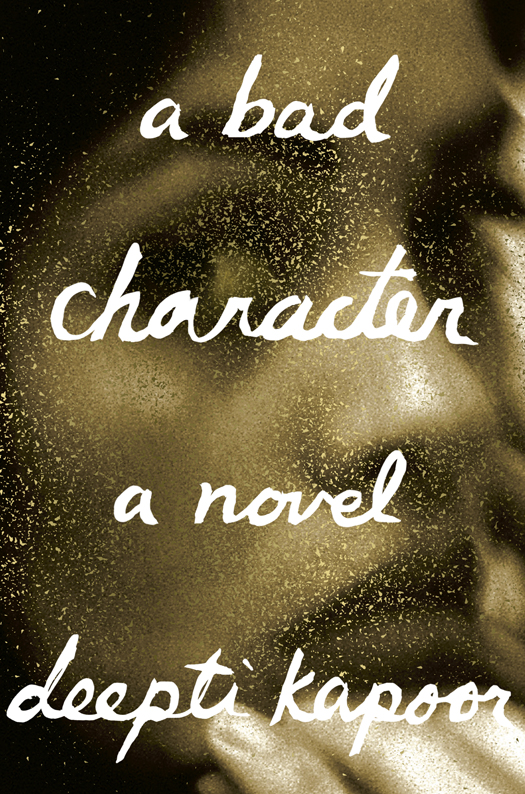
A Bad Character
A Novel
کتاب های مرتبط
- اطلاعات
- نقد و بررسی
- دیدگاه کاربران
نقد و بررسی

November 10, 2014
The debut novel from Indian journalist Kapoor is a tightly rendered story of a young woman’s awakening in contemporary India. The unnamed female narrator, “twenty and untouched” when her mother dies, is sent by her absentee father to be raised by an aunt. Living with her relative in a modest Delhi apartment, the girl begins to feel cramped by her boring university classes and her Aunty’s endless attempts to arrange a marriage. One day she meets a rich, rebellious, darker-skinned young man from a different social class. She finds him “ugly,” yet realizes “there’s something of the animal in him,” and subsequently begins a torrid affair with him. In clipped, haunting paragraphs, the girl tells of her discovery of whiskey, sex, and a gritty, thrilling India that she never knew existed. The tension that the affair will be exposed becomes almost unbearable; however, instead of delivering this impending confrontation with Aunty, Kapoor takes the story in darker and tragic directions. As the novel becomes more about the young woman wrestling with the effects of her relationships, the prose becomes more ruminative and elliptical. The story and the style are reminiscent of Marguerite Duras’s The Lover, but when fused with the vivid Delhi scenes, Kapoor’s novel ventures into exciting and original territory.

November 15, 2014
The meeting between a restless young woman and a manipulative, worldly man in Delhi ignites a volatile, ill-fated love story, delivered with histrionic touches by debut Indian writer Kapoor."The world keeps turning, but no one knows what turns in me," reports the nameless female narrator of this short, overheated first novel, who opens with the announcement that her lover died when she was 21. Looking back 10 years later, the woman records her awkward early years, her mother's death when she was 17, her beloved father's abandonment of her, her relocation to Delhi to live with Aunty and attend college. There, she meets a man in a cafe. "I am pretty and he is ugly. And the secret is this turns me on." Ugly he may be, and a liar too, it emerges, but the man knows Delhi inside out, has wealth, confidence and a wild streak, and woos her slowly but thoroughly. When the sex eventually begins, it's intense and he's in control. Kapoor boosts her slender coming-of-age story with flashes of Delhi in 2000, a place of economic ferment in some quarters, while elsewhere, the teeming centuries-old ways continue. Men's predatory glances-and actions-are all around. Consumed by her passion, the girl allows her lover to dress her and give her drugs to sample. Later, after his death, she will sleep with strangers, taking coke to assuage her guilt at the thought he might have committed suicide over her. Yet their relationship had turned destructive toward the end, heralding the man's mental breakdown. While the truth will remain ever obscure, the girl will eventually move on. Overfreighted with the angst of youth, this novel is at its most impressive in its impressionistic evocation of a dazzling, dangerous cityscape.
COPYRIGHT(2014) Kirkus Reviews, ALL RIGHTS RESERVED.

February 15, 2015
This promising debut explores the intense, short-term relationship that the novel's young female narrator commences with the title's ostensibly "bad character." Idha's lover is unnamed, giving the dark-skinned, unattractive, moody, and wealthy youth an even greater air of mystery. He introduces Idha to a slice of Delhi life spiked with cigarettes, drugs, alcohol, and passionate sex. This slice is juxtaposed to the mundane, even sedate existence she leads with her aunt, who intends to marry her off to the first appropriate prospect who comes along. Kapoor seduces readers with the breathless pace of a first-person, nonlinear narrative told by a young woman desperate to escape the comfort of her present situation and a likely staid future as a married woman. The author describes Delhi with courage and without sentimentality, capturing the allure of forbidden but accessible fruit for Idha and thus for any young Indian woman. VERDICT The real appeal of this novel is that Kapoor never allows her young narrator a final resolution. Idha continues seeking her independence and pursuing bad characters, arguably including herself. Recommended as a counter to fiction that romanticizes contemporary India and especially the lives of women there.--Faye Chadwell, Oregon State Univ., Corvallis
Copyright 2015 Library Journal, LLC Used with permission.

December 15, 2014
Kapoor's riveting debut novel follows a young woman's personal journey amid the shifting, often gritty landscape of modern-day Delhi. It's the year 2000, and the beautiful 20-year-old protagonist and narrator is in her second year of college, living under her aunt's care. A self-described loner, she has been struggling with feelings of displacement ever since the death of her mother when she was just 17, coupled with her father's subsequent abandonment. At a caf' one day, she is approached by an unnamed 27-year-old man to whom she is inexplicably drawn despite his unattractive physical features. She becomes fascinated by the stories he shares of years spent abroad in New York City and the sudden death of his parents, and their sexual attraction grows. Thus sparks an intense, at times discomfiting relationship that begins to pull the narrator away from her conventional life, as she becomes increasingly exposed and lured to the darker recesses of the city and its inhabitants. Kapoor's breathless novel is an intimate, raw exploration of her character's profound transformation.(Reprinted with permission of Booklist, copyright 2014, American Library Association.)

























دیدگاه کاربران